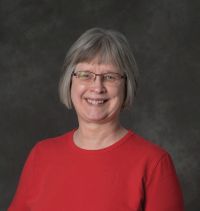Engaging During the Pandemic

Learning to pivot. To turn on a dime, and take it online. As we finally see the first year of COVID in the rear-view mirror, we tentatively hope the worst is over, even as we fear that it is not.
Still, we have a new respect for the fragility of existence and are beginning to achieve a hardwon sense of what works and what doesn't in facing down this formidable enemy. These are valuable assets.
This issue of The Engaged Scholar Magazine looks at how Michigan State University faculty, students, and staff are learning to work with each other and the communities with which they collaborate to create a "new normal" that we all can live with into the future.
Some researchers are on the forefront of COVID-inspired innovations to help us navigate the paradoxes of being alone together and getting our work done. We have stories about faculty who are bridging the rural broadband gap (Keith Hampton and Johannes Bauer); creating interventions to assist young students, who are struggling with feelings of isolation and failure (Dante Dixson); and developing partnerships for delivery of medical education and practice online (Dawn Goldstein).
Others are addressing long-standing community priorities. They offer training programs to assist beginning Latinx farmers to learn about sustainability practices (David Mota-Sanchez); collaborations with local housing agencies and tribal councils for safe and healthy housing in Alaska (Kristen Cetin); a business model to help keep hospitality businesses afloat through the pandemic and beyond (MiRan Kim); and partnerships with African American churches and other faith-based organizations to improve health and well-being in the Flint community (Vicki Johnson-Lawrence and Rodlescia Sneed).
Still others are committed to ensuring that nobody gets left behind as we move into our new digital world, especially young children with complex communication needs (Sarah Douglas); and imagining a new role for virtual reality in keeping musical theatre students connected and engaged with their curriculum (Brad Willcuts).
We also have a thoughtful overview of the year and its changes by UOE interim associate provost Laurie Van Egeren, and a summary of conversations with a wide range of MSU stakeholders about what our partners want and do not want during the pandemic from their University collaborators, conducted by Miles McNall, director for community-engaged research, Office for Public Engagement and Scholarship.
Finally, you might want to take notice of our fresh new look, courtesy of UOE graphic designers Kelly Hansen and Mike Davis.
Stay safe and well,
Linda Chapel Jackson
Editor